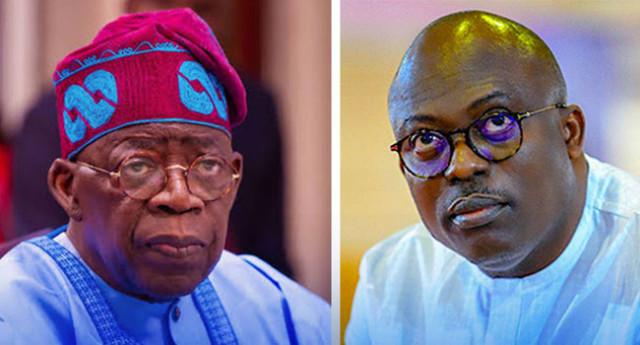RIVERS, Nigeria - The Federal Government has gathered a team of 10 Senior Advocates of Nigeria, headed by former Attorney General Chief Akin Olujinmi (SAN), along with six additional lawyers, to defend the declaration of emergency rule in Rivers State against a lawsuit filed by 11 governors of the People’s Democratic Party (PDP) contesting the suspension of democratic governance in the resource-rich state.
The Senior Advocates involved are Prof Kanyinsola Ajayi, Jelili Owonikoko, Kehinde Ogunwumiju, Tijani Gazali, Babatunde Obama, Olawale Fapohunda, Olumide Olujinmi, Akinyemi Olujinmi, and Ademola Abimbola. Other team members include Akinsola Olujinmi, Oluwole Ilori, Abdulwahab Abayomi, Mojeed Balogun, Jideuche Ezi, and Ramat Tijani.
President Bola Tinubu declared a State of Emergency in Rivers State on March 18, 2025, which resulted in the suspension of Governor Siminalayi Fubara, Deputy Governor Ngozi Odu, and all elected members of the State House of Assembly for an initial six-month period.
Following this action, the President appointed retired Ibokette Ibas as the sole administrator to manage the state's affairs during the suspension period. The National Assembly ratified the President's declaration through a voice vote.
In response, the 11 PDP governors filed a lawsuit against the Attorney General of the Federation (AGF) and the National Assembly, listed as the 1st and 2nd defendants respectively, in the Supreme Court.
The plaintiffs include the states of Adamawa, Enugu, Osun, Oyo, Bauchi, Akwa Ibom, Plateau, Delta, Taraba, Zamfara, and Bayelsa. They are seeking a determination from the Supreme Court regarding the President's authority to suspend an elected state institution and replace it with an unelected one.
They are also querying whether the President can lawfully suspend or interfere with the offices of governors and deputy governors under the state of emergency proclamation and whether the AGF's threats to suspend these offices violate the principles of constitutional federalism and the 1999 Constitution. Further, they challenge the legality of the National Assembly's approval of the state of emergency by a simple voice vote rather than the constitutionally required two-thirds majority.
The plaintiffs are seeking declarations from the court asserting that the President cannot lawfully suspend or interfere with the offices of state governors and assemblies under emergency conditions and that the Attorney-General's threats to do so are unconstitutional. They are also requesting a perpetual injunction to prevent such interference in the future and nullification of the state of emergency proclamation in Rivers State.
In a preliminary objection filed on May 9, 2025, the Federal Government, represented by Chief Olujinmi (SAN), urged the Supreme Court to dismiss the PDP governors' case. The AGF contended that the lawsuit does not pertain to the Supreme Court's original jurisdiction under section 232(1) of the 1999 constitution, arguing that there is no justiciable dispute between the Federation and the plaintiffs.
The AGF emphasized that the plaintiffs failed to demonstrate a legal dispute and lacked the standing to file the suit, deeming it hypothetical, academic, and an abuse of court process. In support of the emergency declaration, a counter-affidavit filed by Taiye Oloyede, a Special Assistant to the President, recounted the serious political crisis in Rivers State, which led to a breakdown of governance and stalling of legislative functions.
Oloyede asserted that the existing turmoil necessitated the President's intervention to prevent further violence, as various factions within the state legislature had resulted in dysfunction.
He noted that escalations in violence, including attacks on key assets and threats from militants, prompted the President to declare a state of emergency to restore order.
In conclusion, the AGF requested the court to uphold the preliminary objection and dismiss the plaintiff's suit. The Supreme Court is expected to announce a date for the hearings. The National Assembly has also filed a preliminary objection urging dismissal for lack of standing and highlighting procedural failings by the plaintiffs, claiming they did not follow the necessary pre-action requirements.




















